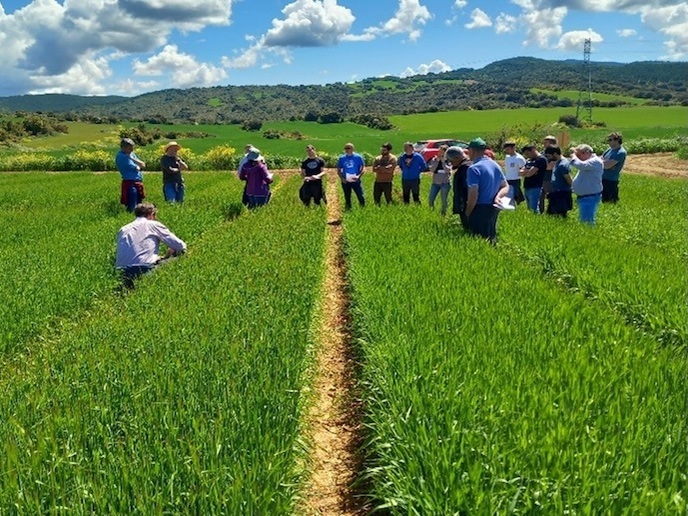Farm networks show benefits of low-pesticide practices
Overuse of chemical pesticides can have a detrimental impact on the environment, biodiversity, and even human health. This has been acknowledged in the EU’s farm to fork strategy(opens in new window), which sets out ambitious targets to reduce Europe’s reliance on pesticides. One way of achieving these targets is to promote what is known as integrated pest management (IPM). This involves dealing with diseases, pests and weeds through a range of complementary measures such as better land and crop management. In this way, the use of chemical pesticides can be drastically reduced. “One challenge however is to agree on a clear and practical definition of IPM, that is in line with the objective of reducing the reliance on chemical pesticides,” notes IPMWORKS(opens in new window) project coordinator Nicolas Munier-Jolain from the National Research Institute for Agriculture, Food and Environment(opens in new window) (INRAE) in France.
Farmers at centre of IPM transition
The EU-funded IPMWORKS project sought to address this by better defining IPM, demonstrating in practice the environmental and cost benefits of IPM strategies, and putting farmers at the very centre of the IPM transition. “The methodology we used to promote IPM was based on peer-to-peer learning, through a network of 22 farmer hubs(opens in new window) across 13 Member States as well as Serbia, Switzerland and the United Kingdom,” explains Munier-Jolain. “We worked with pioneer farmers to show how IPM can save money while producing healthy crops.” These hubs, also networking with national hubs already demonstrating IPM, brought together groups of volunteer local farmers (typically 10 to 15) to meet and discuss IPM strategies and share knowledge. Each hub was coordinated by a ‘Hub coach’ who organised meetings, invited experts and facilitated IPM adoption.
Developing a clear definition of IPM
Surveys were carried out to assess the success of various IPM measures (for example how much chemical pesticide was reduced) and to gauge farmer satisfaction. A range of factsheets(opens in new window), reports on success stories and policy briefs were published. Lessons and feedback from the hubs enabled the project team to develop a clear definition of IPM in terms of objectives and practical implementation. “The aim of IPM should be to have healthy crops, avoid any yield loss due to pests, while reducing drastically our reliance on pesticides and the impact this can have,” says Munier-Jolain.
Landscape management and application of technology
For implementation, five key IPM pillars were identified. The first – management of the landscape – might involve planting hedgerows, grasses and flowers to attract beneficial organisms that feed on pests. The second – redesigning cropping systems – means reducing pressure from pests, weeds and diseases through more diversified crop rotation, more resistant cultivars and many other measures. Third, non-chemical solutions – such as biocontrol and mechanical weeding – should also be considered, while decision support systems, the fourth pillar, can help to avoid unnecessary treatments. Fifth, technologies should be used to maximise the efficiency of treatments, such as only applying herbicides to areas where patchy weeds are growing. The plan is now to maintain this network of farms and increase the number of famers participating. “We have not reached all Member States, so there is still room to expand,” adds Munier-Jolain. “The ideal situation would be to be able to fund coordination of these hubs at the EU level. This is important for organising the work and training famers.”



